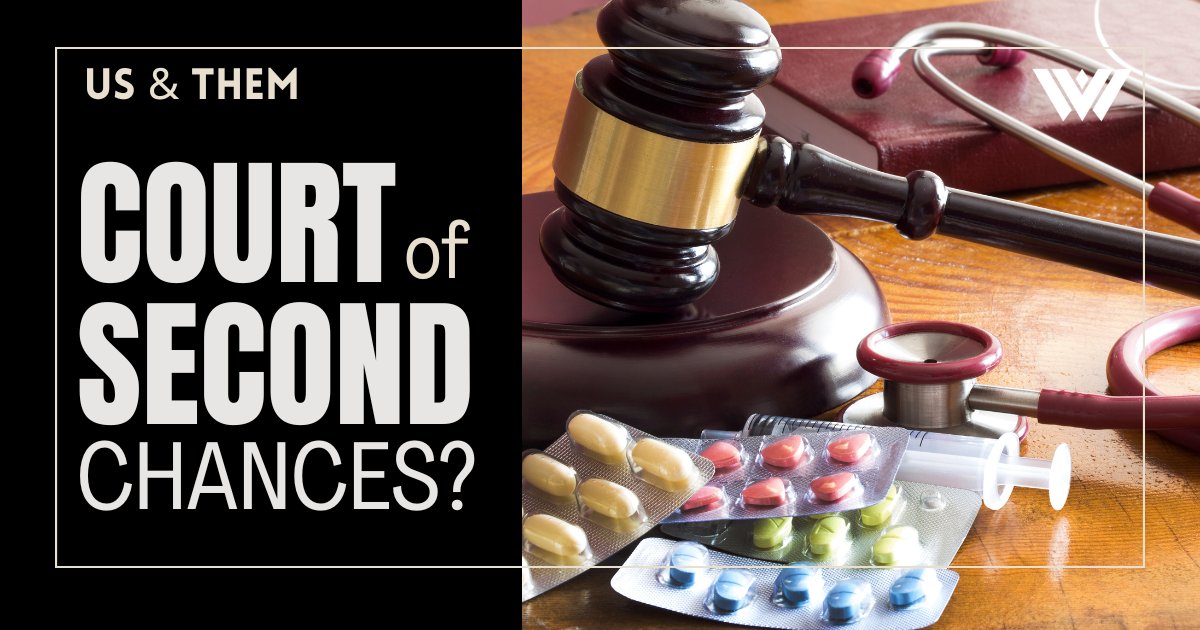This episode of Us & Them was first released in December 2022, and since then has received a regional Edward R. Murrow award from the Radio Television Digital News Association for best podcast. We’ve updated the episode and want to share it with you again now.
In West Virginia, there are nearly 50 specialized court programs designed to help teens and adults kick their drug addictions. Drug courts divert people away from incarceration into a rigorous, court-monitored treatment program. They are intense experiences, some more than a year long. Participants are drug tested regularly and require monitoring devices.
Graduation rates across the country show success rates from 29 percent to more than 60 percent. There are many supporters within the justice system, but critics say drug courts only work with the easiest first-time offenders and don’t take violent offenders or sex offenders. Some drug courts require a guilty plea before someone can participate, which can limit a person’s options if they don’t make it through the program.
In this Us & Them episode, host Trey Kay talks with people about this court-designed approach to sobriety that began nearly 50 years ago when the first drug court opened its doors.
This episode of Us & Them is presented with support from the Just Trust, the West Virginia Humanities Council, the CRC Foundation and the Daywood Foundation.
Subscribe to Us & Them on Apple Podcasts, NPR One, RadioPublic, Spotify, Stitcher and beyond.
Courtesy Photo
Courtesy Photo
Credit: Trey Kay/West Virginia Public Broadcasting
Credit: Wesleyan University
Fowler told Kay his new commitment to turn his life around came after an overdose that left him in a coma. “I had to learn to walk and talk again. And from that moment on, I just knew there’s more to life than death,” he said.
Credit: Trey Kay/West Virginia Public Broadcasting
“My mom is an addict. She was one of the first people who I started using with. And as a child, we don’t ever think that our parents are going to steer us in the wrong direction. But, you know, sometimes people make a choice. Some people, you know, eventually it does become a choice. Some people are born into it,” Sullivan said.
Credit: Trey Kay/West Virginia Public Broadcasting
Credit: Netflix
